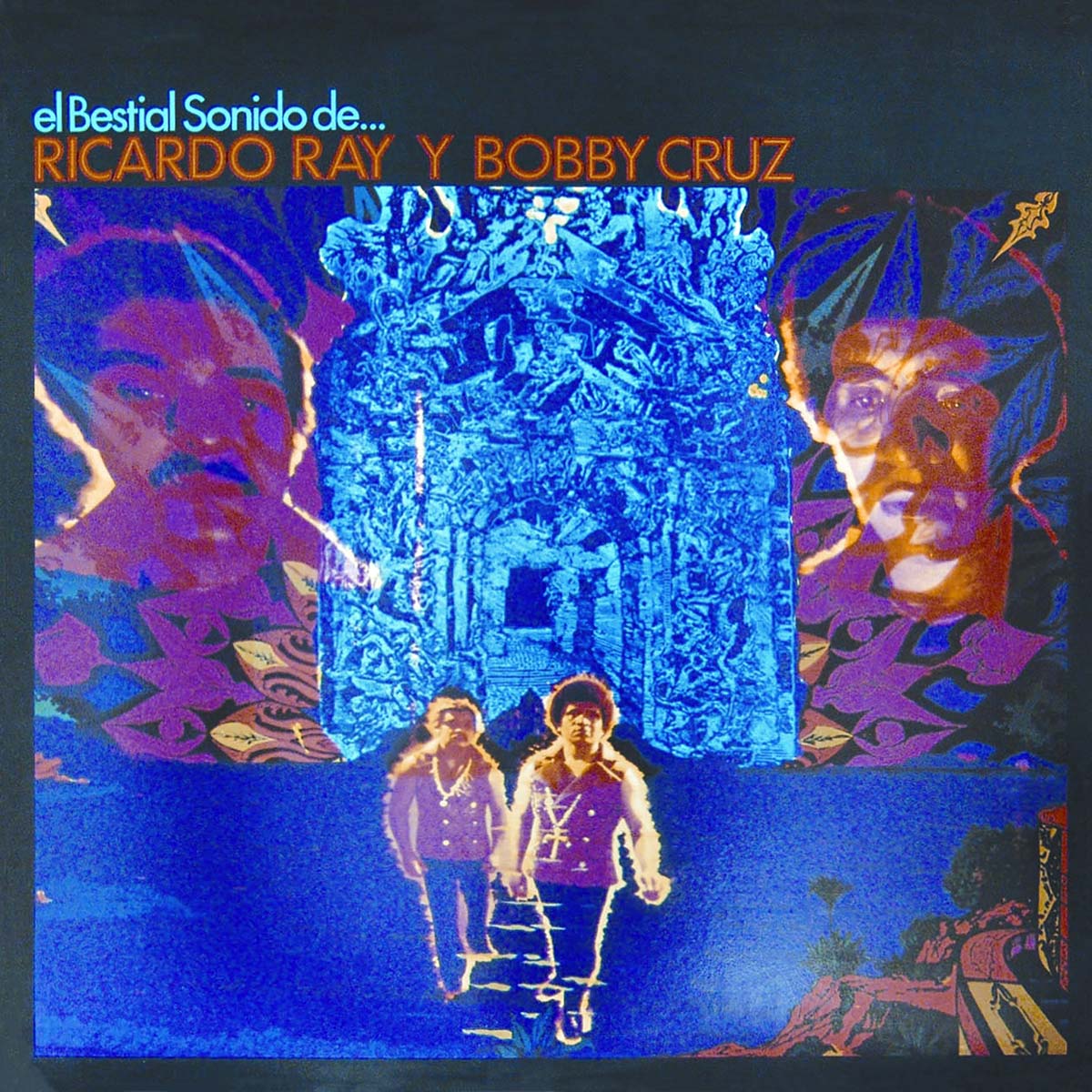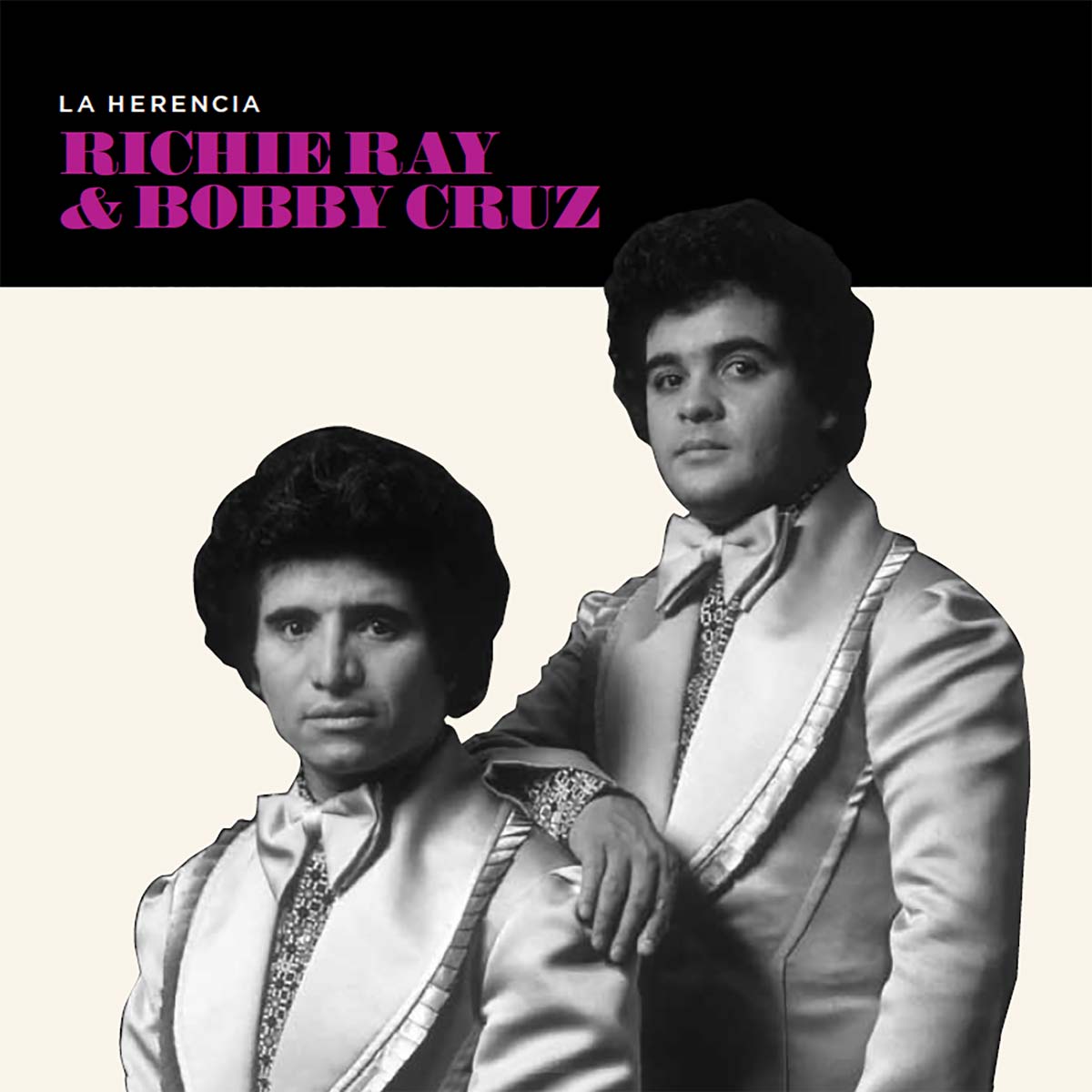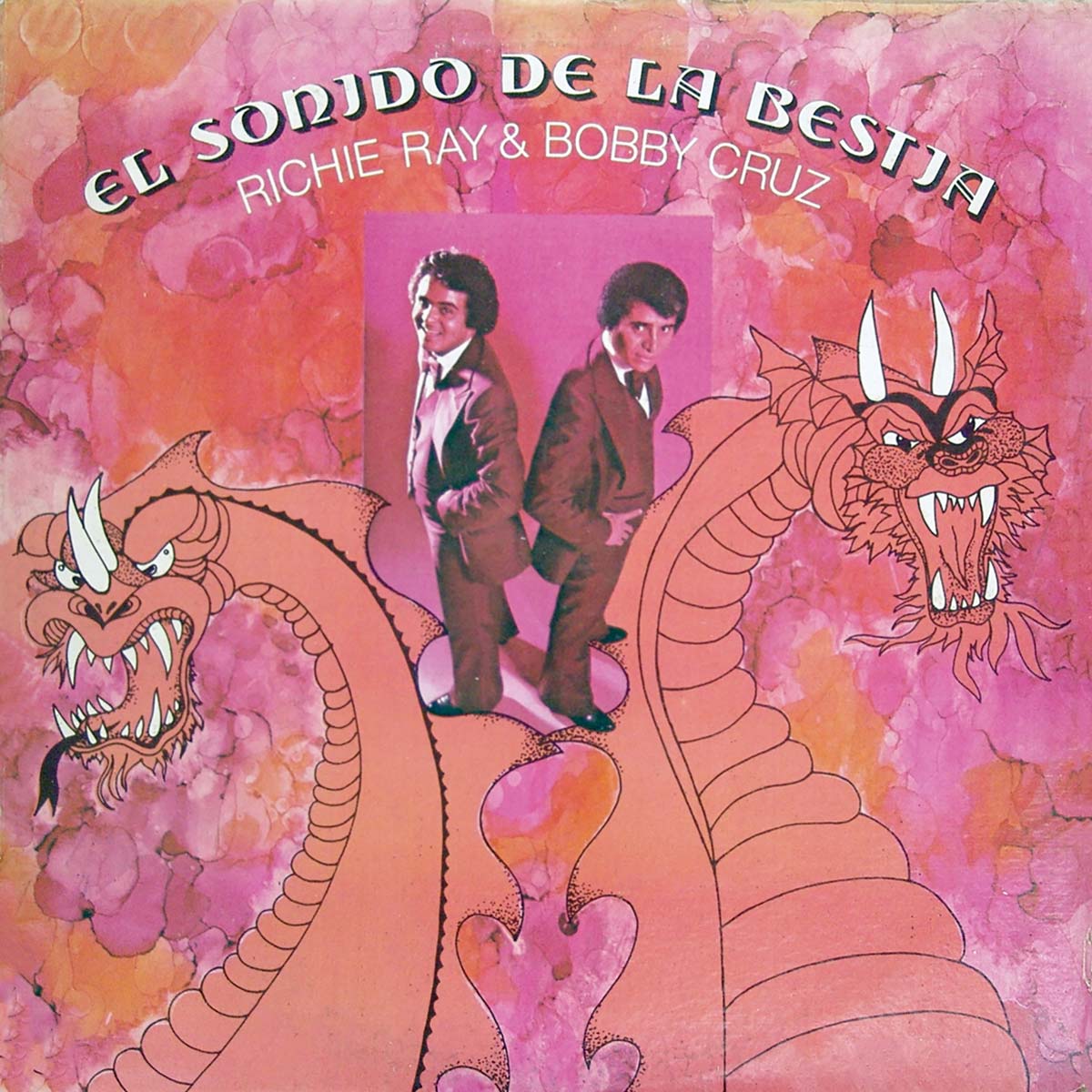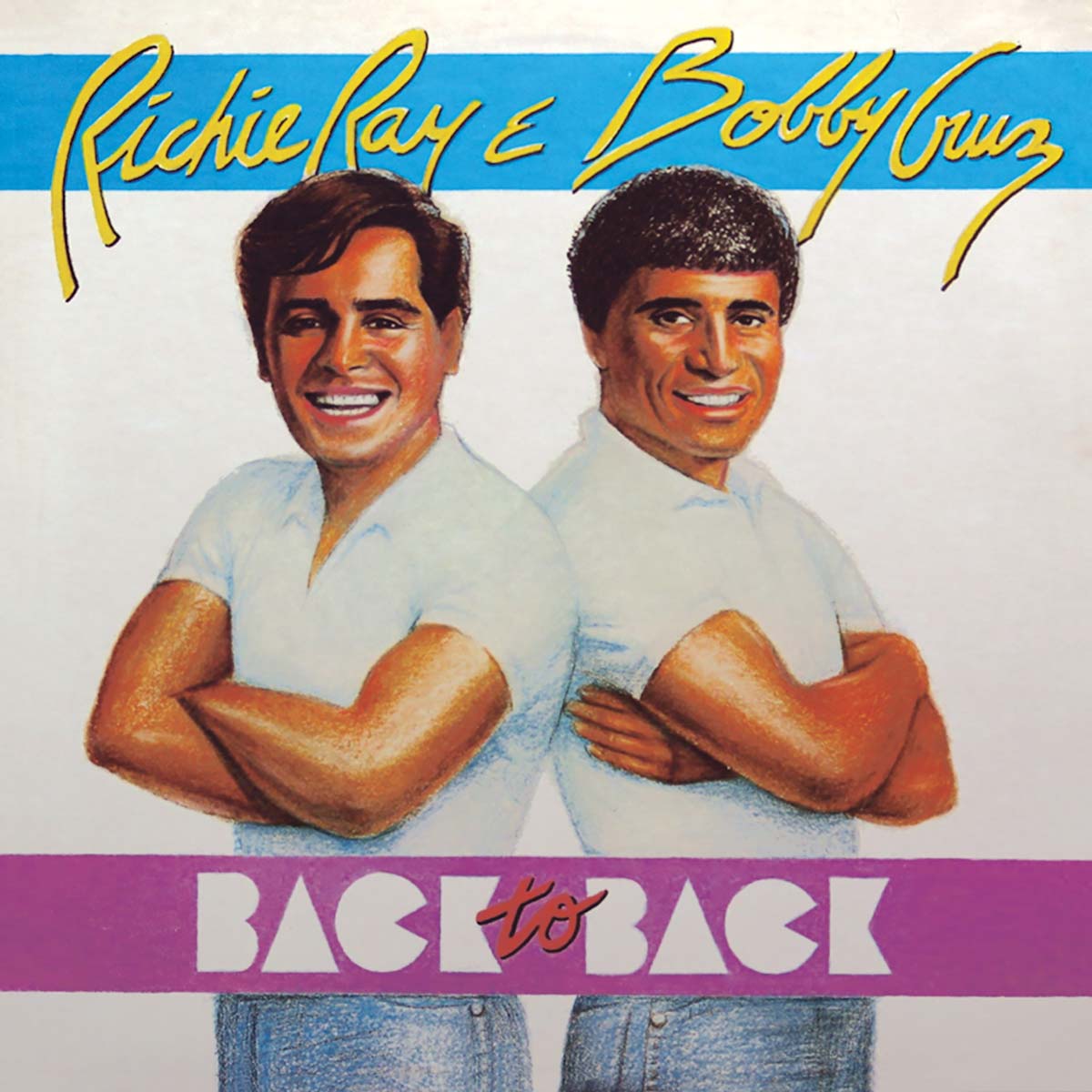
El Bestial Sonido is the best album in the catalogue of music by Ricardo Ray and Bobby Cruz. It is a must-have for fans of Los Durísimos. Most would agree that in its early New York days, the orchestra saw some of the finest musicians of salsa and jazz. Trumpeters Adolphus Doc Cheatham and Pedro Chapparo, and timbal player Mike Collazo are excellent examples.
What is truly indisputable is that the most astounding lineup of the Richie Ray Orchestra was the very one that recorded “El Bestial Sonido” in 1971, confirming what everybody already knew: the best instrumentalists in the history of salsa have been Puerto Rican. El Bestial Sonido de Ricardo Ray & Bobby Cruz is a classic because of the orchestra’s masterful and irresistible interpretations, Bobby Cruz and Miki Vimari’s vocals, and the band’s successful repertoire, which was certainly one of the most stimulating and perfectly balanced of all time. It was musical success that consecrated Richie as the most multifaceted pianist, arranger, composer, and orchestra director of his genre. You only need to hear the first bar of Sonido Bestial to appreciate Richie’s savvy in creating a tapestry of rhythms combining the jala-jala, guaguancó, jazz, and classical music in a solo that evokes the influences of formal European music, with ingenious variations on the melodies of Stravinsky and Bach. Aside from achieving cultural transcendence by integrating distant musical forms, El Bestial Sonido is an album with unquestionable sociological value. In 1971, the country was tormented by the boricua blood being spilled throughout Vietnamese jungles in a conflict that enshrouded hundreds of Puerto Rican families in grief and polarized the country on the question of whether to support the United States in the Vietnam War.
Richie Ray and Bobby Cruz strived to console their boricua brothers with the song “Guaguancó Triste” by Rubén Blades. This is a song of hope, with an exceptional arrangement that combines the guaguancó, classical music, the boogaloo, the bomba, and the jala-jala. Even today, the lyrics strike a chord in the hearts and minds of the boricua people: Para ti traigo mi guaguancó Triste es su canto sabor a llanto y a soledad. Puedo oír ecos de un pregonar que hablan de penas y de esperanzas lloran por la tierra mía porque se lleven contentos… At a time when many criticized the superficiality of salsa, Richie and Bobby proved with Blades’ composition that they could use music to make people dance – or to make them reflect on life. Another great example is the band’s version of a ballad with hints of soul, blues, and bolero: “Fire and Rain” by James Taylor. Interestingly, this is one of the first songs in the band’s repertoire that alludes to God, the Supreme Being, to whom they would dedicate their talents officially in 1976, beginning with the album Rican/Struction Señor asómate y contempla mi afán Tendrás que ayudarme a otro día afrontar Sólo en mis sueños tengo tranquilidad Es un martirio volver a despertar… However, like other great musicians of the time, Richie and Bobby also paid homage to yoruba deities on countless occasions and, prior to their transformation, they paid tribute to the Saint with Pablito El Indio Rosario’s guaguancó number “Cha cha huele Changó,” at a time when musicians were trying to survive in an atmosphere of jealousy, lies, and hypocrisy. The contributions from Mañengue Hidalgo on the congas, Manolito González on the bongo and hand bell, and Charlie on the timbal are extraordinary.
With El Bestial Sonido, Richie and Bobby also stepped to the forefront by being the first to adapt romantic ballads to the genre. One example is Joan Manuel Serrat’s popular song “Señora,” which the band performed without montuno or a refrain. In the band’s version, Bobby, a singer influenced by Rafael Chivirico Dávila, reaffirmed –as he did in “Fire and Rain”– that he could shine in other genres. His duet with Miki Vimari in the bolero version of the immortal tango number “Volver” by Carlos Gardel and Alfredo Lepera confirms this. Bobby’s countermelody is exquisite, and in the first few bars of both “Volver” and “La Vimari,” Miki –who had previously collaborated with the band on the albums In Orbit and El Diferente– captures a sensual bossanova that leads into a beautiful son. After Richie’s experiments with female vocalists such as Nydia Caro and Carmen Soto, it was clear that Miki was the singer this orchestra had been looking for. Thirty-five years after its original release, El Bestial Sonido de Richie Ray & Bobby Cruz is a must-have, an album worthy of the attention of music lovers around the world. Most importantly, it is an album radio stations should play for younger generations to enjoy.
Credits Ricardo Ray: Piano, arrangements, chorus, countermelody Bobby Cruz: Lead vocals, chorus, arrangements Miki Vimari: Vocals, chorus Ismael “Cocolía” Rodríguez: First trumpet Ismael “Maelo” Rodríguez: Second trumpet Manolito González: Bongo, cowbell, timbalitos José “Mañengue” Hidalgo: Conga Charlie “El Pirata” Cotto: Timbals Mike “El Che” Amitin: Bass Recording Director: Johnny Pacheco Producer: Ricardo Ray y Bobby Cruz Recorded at: Ochoa Recording, San Juan, P.R. Engineer: Pedrito Mixed by: Fred Weinberg Original Cover Photo: Maurice Seymour Original Cover design: Izzy Sanabria
Written by Jaime Torres Torres





